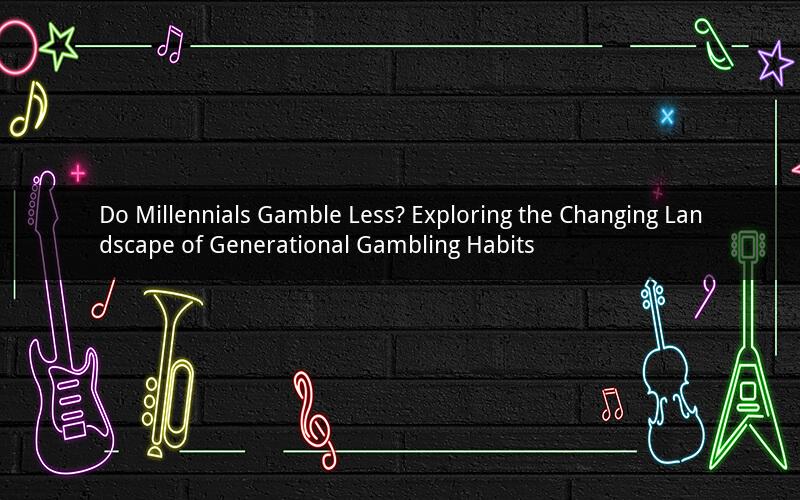
The landscape of gambling habits has shifted dramatically over the years, with each generation exhibiting unique patterns and preferences. One of the most intriguing questions in this discussion revolves around millennials and their propensity to engage in gambling activities. Do millennials gamble less compared to previous generations? This article delves into this topic, examining the reasons behind the perceived decrease in gambling among millennials and the implications for the industry.
Reasons for the Decrease in Millennial Gambling
1. Technological Shifts: One of the primary reasons attributed to the decline in gambling among millennials is the rise of technology. As technology continues to evolve, millennials have become increasingly engaged with online activities, such as social media, streaming, and gaming. These alternatives have occupied a significant portion of their leisure time, reducing the time and interest they have in traditional gambling activities.
2. Financial Concerns: Millennials are often characterized as a generation that prioritizes financial stability. As such, they may be more cautious when it comes to spending money on gambling, especially in light of the economic uncertainty and rising costs of living. The fear of potential financial losses may deter them from engaging in gambling activities.
3. Social Values: Millennials are known for their strong emphasis on social responsibility and ethical practices. This values-driven mindset may influence their attitude towards gambling, as they may be more conscious of the potential negative consequences and societal impacts associated with gambling addiction.
4. Regulatory Environment: The regulatory environment has also played a role in shaping millennial gambling habits. Governments around the world have implemented stricter regulations on gambling activities, which may have indirectly affected the availability and appeal of gambling options for millennials.
Implications for the Gambling Industry
The decline in millennial gambling has several implications for the gambling industry:
1. Market Saturation: As millennials are less likely to engage in gambling activities, the industry may face challenges in attracting new customers. This could lead to increased competition for existing customers, as gambling operators vie for the attention of other generations.
2. Shift in Marketing Strategies: To cater to the preferences of millennials, gambling operators may need to revamp their marketing strategies. This could involve leveraging digital channels, focusing on responsible gambling, and creating unique, engaging experiences that resonate with this generation.
3. Diversification of Offerings: To maintain relevance, the gambling industry may need to diversify its offerings beyond traditional casino games. This could include expanding into new areas such as sports betting, esports, and virtual reality gambling experiences.
4. Responsible Gambling Initiatives: The decrease in millennial gambling may prompt gambling operators to place a greater emphasis on responsible gambling initiatives. By addressing the potential risks associated with gambling, operators can build trust and credibility among all generations.
Frequently Asked Questions
1. What is the definition of a millennial?
A millennial is generally defined as someone born between 1981 and 1996. This demographic is often characterized by their technology-driven lifestyle, social values, and financial concerns.
2. How has technology affected gambling habits among millennials?
Technology has played a significant role in shaping millennial gambling habits. The rise of online activities such as social media, streaming, and gaming has occupied a significant portion of their leisure time, reducing the time and interest they have in traditional gambling activities.
3. Are millennials less likely to develop gambling addictions compared to previous generations?
While it is challenging to generalize, there is evidence to suggest that millennials may be less susceptible to gambling addiction. This can be attributed to their values-driven mindset, financial caution, and the impact of technology on their leisure time.
4. How are gambling operators adapting to the changing landscape of millennial gambling habits?
Gambling operators are adapting to the changing landscape by leveraging digital channels, focusing on responsible gambling, and diversifying their offerings. They are also exploring new areas such as sports betting, esports, and virtual reality gambling experiences.
5. What can governments do to mitigate the potential negative consequences of gambling among millennials?
Governments can mitigate the potential negative consequences of gambling among millennials by implementing stricter regulations, promoting responsible gambling initiatives, and providing resources and support for individuals struggling with gambling addiction. By taking these steps, governments can help ensure a safe and responsible gambling environment for all generations.